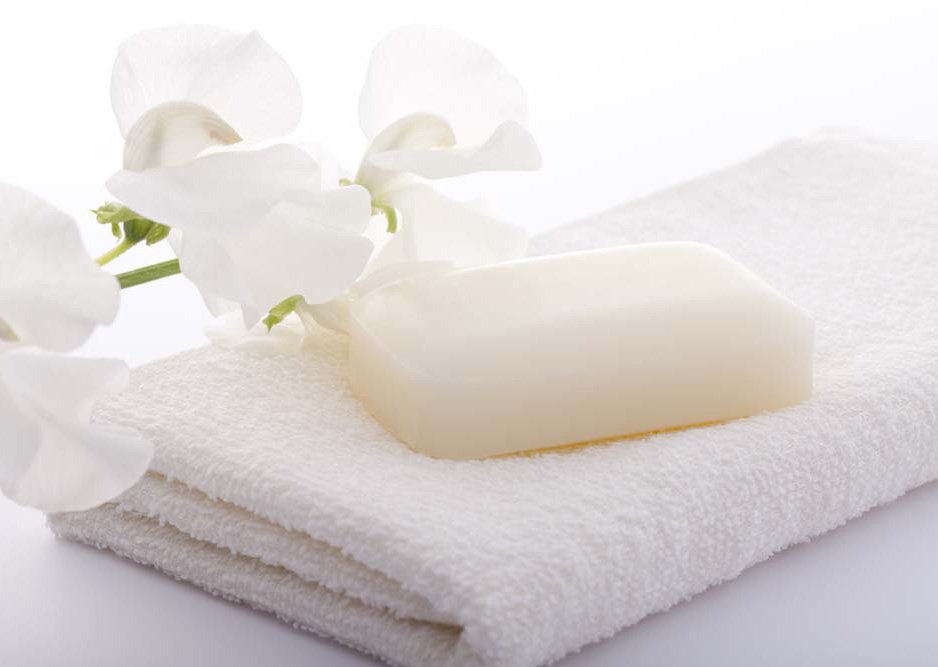[China Towel Industry Network] First, look at the number of loops.
The towel is a double-faced looped Fabric with many raised loops on the surface, which is the main symbol of the quality of the towel. Good quality towels, the front and back sides of each square have many long and long loops, rich and soft, easy to absorb and store water; poor quality towels, short and few loops, not rich enough.

Second, the amount of sputum is light and heavy.
A good quality towel with a heavy weight; a poor quality towel with a light weight. You can use the method of estimating and comparing to select good products with heavy weight.
Third, identify the height of the yarn.
The better the quality of the yarn used for weaving the towel, the higher the yarn. High-grade towels are usually made up of 32 and 21 interlaced; mid-range towels are mostly woven with 21 or 20; low-grade towels are woven with 21 or 16 yarns.
Fourth, feel soft and hard.
The yarn of the woven towel has the distinction of the mature yarn and the raw yarn, and the cooked yarn is durable and the raw yarn is poor. It can be distinguished by hand, the cooked yarn is soft to the touch, and the raw yarn feels hard. It can also be distinguished by the difference in water absorption, take a small amount of water, and drop the towel from the height of 20-30 cm. If the water droplet is immediately sucked in, it is woven for the mature yarn; if the water absorption speed is slow, it is the raw yarn weaving.
Fifth, check the weaving fine.
Tile the towel or dialysis against the sun to see if there is any broken warp, broken weft, exposed bottom (ie, no hair), napped, thin road, uneven loops, raw edges, curling, false edges, tooth edges, seams Weaving defects such as edges and jumpers, and whether there are appearance defects such as bleeding, rust stains, stains, printing materials, and blurring. If not, it indicates that the quality is high, only a small amount of quality is generally, and more quality is poor.
Texture
The quality of the towel is fluffy and soft, which gives a feeling of comfort. It feels elastic in the hand and sticks to the face like a spring breeze. It gives people a feeling of affection, and the towel should not be dried. Hard to avoid hurting your skin.
color
Whether it is a printed towel or a plain towel, as long as the materials are used, the craft is in place, it must be very bright. At first glance, there is a sense of freshness. Avoid buying old towels, because the towels are generally simple in process and poor in materials. Impede health.
pattern
Towels are also a kind of art. They are a kind of decoration, giving people a spiritual enjoyment. They will not be seen in any place in the room. The good towel pattern is clear, the printing is accurate, full, novel and contemporary. Don't buy shoddy, fake-like counterfeit goods, so as not to lower your taste and contaminate your home.
Water absorption
Towels have a strong requirement for hydrophilicity. Towels are rubbed, moisture is dried, and dust is removed. This requires high-quality cotton yarn, advanced scouring and printing processes, perfect testing and inspection methods, and rubbing on the face. A slippery, non-absorbent, non-decontaminating towel can affect your quality of life.
Style work
Towels can be available in a variety of different styles, including spiral, cut velvet, plain, printed, plus satin, satin, embroidery, decal, rowing, inlay and many other techniques. Such towels are generally made of materials, high quality, plus fine seams, horizontal and vertical, just the right trademark sewing, etc., the towels look very elegant, can not pick the fault, people can not put it down, avoid buying those shoddy, No trademarks and towels of the exact origin.
The quality of towel fabrics is mainly identified from three aspects: physical indicators, weaving defects, and appearance defects. In addition to physical indicators that need to be measured by the instrument, the weaving defects and appearance defects are collectively referred to as surface defects, which can be determined by external inspection.
(1) Weaving defects. It mainly includes menstruation, broken weft, dew-transmitting (ie, no raising) pulling, thinning, terry, flat cloth (the opposite side of single-face towel), raw edges, curling, tooth edge and seam jumping needle, etc. . The above problems can usually be identified by looking at the sun or by tiling.
(2) Appearance defects. Mainly including discoloration, color mixing, rust stains, stains, oil stains, wood printing skew and mold lake unclear. This is a problem of printing and bleaching, which can generally be identified by eyesight.
(3) Fragile defective products. This is due to improper bleaching and color development, oxidized cellulose or hydrolyzed cellulose, causing the fabric to be brittle. A serious hand is broken. In general, fabrics are grayish white or grayish, and all have such problems. Or take out two cotton yarns from the fabric. If the yarn breakage is relatively brittle, the quality is good; there is no crisp sound, indicating that there is something wrong.
emboridery fabric, quilting fabric
Nanjing Intime Import and Export co., Ltd. , https://www.china-intime.com
